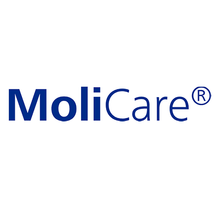Information from the Eldercare Locator:
As you grow older, you may notice differences in the way your mind works. You may have difficulty finding the correct words, multitasking or paying attention. The good news is that even if you have already noticed some of these changes, you are still able to learn new things, create new memories and improve vocabulary and language skills.
Some health conditions can negatively affect your brain. Heart disease, high blood pressure and diabetes can alter or damage blood vessels throughout your body, including the brain. Alzheimer’s disease and other types of dementia also harm the brain. While no one knows how to prevent dementia, many approaches that are good for your health in other ways, including engaging in exercise and eating a healthy diet, are being tested.
You can start to support your brain health with some small, first steps and build from there.
Begin an exercise routine, such as a daily walk, with the goal of increasing the amount of time and speed. To learn more about how to move or exercise in a healthy way, ask your health care provider about your personal situation. Being physically active may help reduce the risk of conditions that can harm brain health, such as diabetes, heart disease, depression and stroke; it may also help improve connections among your brain cells. Older adults should get at least 150 minutes of exercise each week.
Try to maintain a balanced diet of fruits and vegetables, whole grains, lean meats (including fish and poultry) and low-fat or non-fat dairy products. Monitor your intake of solid fat, sugar and salt, and eat proper portion sizes. Add an extra serving of fruit and vegetables each day.
Make an appointment for a health screening or a physical exam.
Get recommended health screenings regularly.
Manage health conditions, such as diabetes, high blood pressure and high cholesterol.
Be sure to talk with your doctor or pharmacist about the medications you take and any possible side effects on memory, sleep and how your brain works. Some medications and certain combinations of drugs can affect your thinking and the way your brain works. Older adults taking medications should be particularly careful when consuming alcohol, as drugs may interact negatively with it.
Drink moderately. Drinking alcohol can slow or impair communication among your brain cells. This can cause slurred speech, a fuzzy memory, drowsiness and dizziness; it can also lead to long-term difficulties with your balance, memory, coordination and body temperature. Staying away from alcohol can reverse some negative changes related to brain health.
Don’t smoke. Quitting smoking at any age will be beneficial to the health of your mind and body. Non-smokers have a lower risk of heart attacks, stroke and lung diseases, as well as increased blood circulation.
Older adults are at higher risk of falling and other accidents that can cause brain injury. To reduce the risk of falling, exercise to improve balance and coordination, take a falls prevention class, and make your home safer.
Keep your mind active by doing mentally stimulating activities like reading, playing games, learning new things, teaching or taking a class and being social. Seek out volunteer opportunities that interest you. Sign up for a class or program at your community college or community center.
Older adults who remain active and engaged with others by doing activities like volunteering report being happier and healthier overall.
Visit Your Local Area Agency on Aging
There is an Area Agency on Aging (AAA) in virtually every community in America and so chances are, there is one near you. AAAs provide a welcoming environment for older adults and caregivers interested in learning about a range of services from meals, transportation and in-home care to volunteer opportunities and classes to keep them healthy and engaged in their community.






